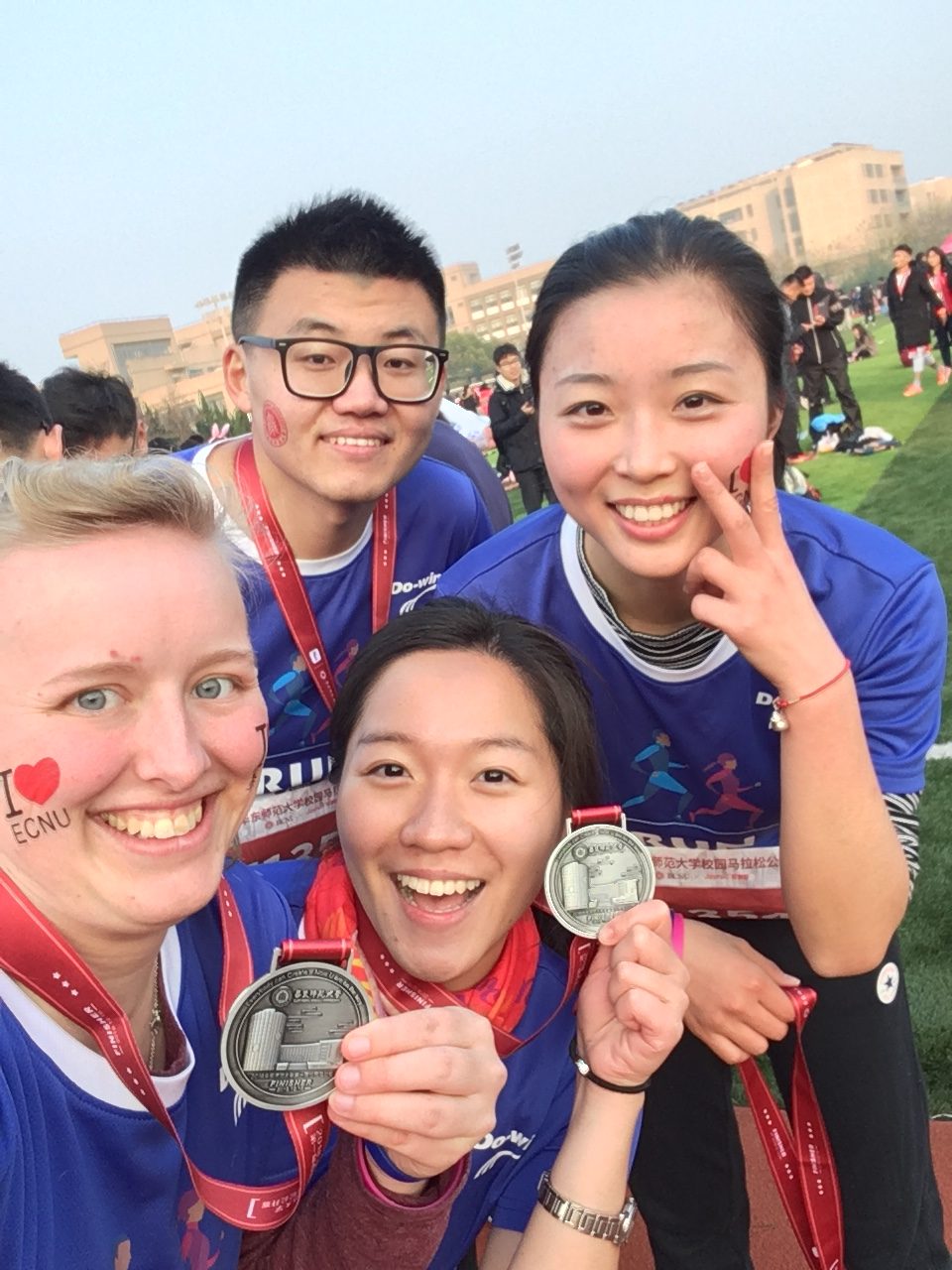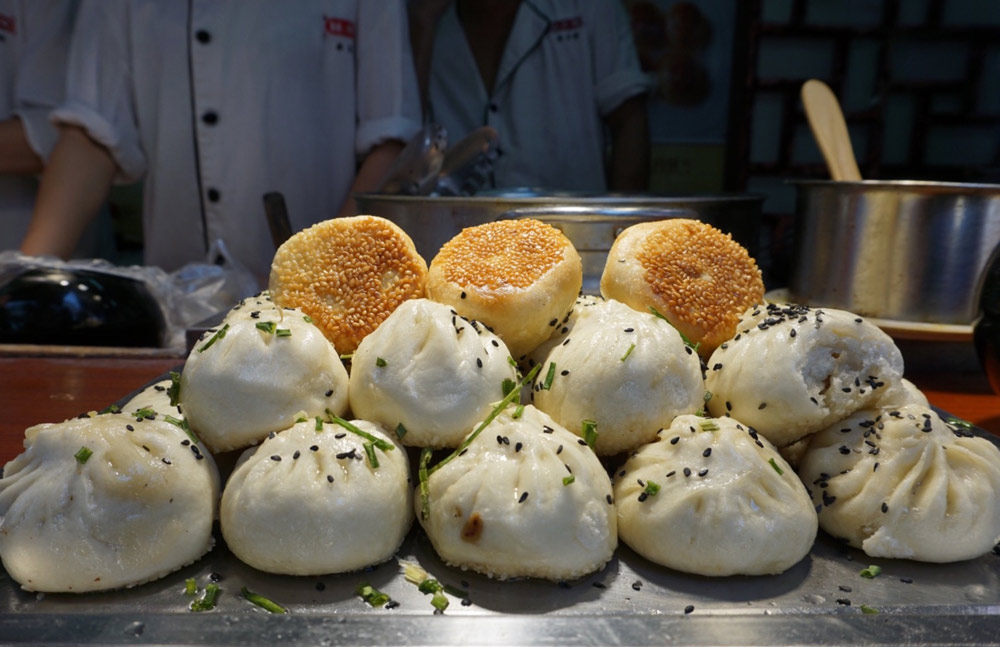Thinking about spending your semester in Shanghai or the ‘Pearl of the Orient’? Here’s how to make the most of studying abroad in Shanghai both before you go and while you’re there!
Learn about China’s history before you go
While there are Chinese culture and history courses you can take while in China, it’s great to have a bit of cultural and historical context before you reach the country. See if your home university has a Chinese history class or check out Chinese books or films before your time abroad. Here’s a list of some of our favorites:
- Balzac and the Little Chinese Seamstress – A great story about re-education during the cultural revolution.
- Red Sorghum – Written by one of the only Chinese Nobel Prize winners for literature, this book covers the events in a village during the second Sino-Japanese War.
- Life and Death are Wearing Me Out – By the same author of Red Sorghum, this novel follows the six lives of a former landlord as he is reincarnated, spanning from 1948 to 2000.
- The Wedding Banquet – This light-hearted yet heart warming film explores the experience of a gay Chinese-American man and his relationship with his parents.
- Not One Less – Set in the 1990s, this film tells the story of a 13-year-old substitute teacher and her journey to find a missing student.

Familiarize yourself with basic Chinese phrases
The majority of Shanghai’s population speaks some English, but it’s good to brush up on basic Mandarin to help get by and connect with the local community. Language programs like Duolingo and Rosetta Stone are helpful or you can check if your local library offers any free options. It’s also a good idea to learn how to read pinyin, which is the romanized version of standard Chinese. Some must-know phrases are :
你好 (nĭ hăo – hello)
谢谢 (xièxie – thanks)
再见 (zàijiàn – bye)
卫生间 (wèishēngjiān – bathroom)
你会说英语吗? (Nǐ huì shuō yīngyǔ ma? – Do you speak English?)
我不会说中文. (Wǒ bù huì shuō zhōngwén. – I don‘t speak Chinese)
对不起 (duìbùqǐ – I’m sorry)
不好意思(bù hǎoyìsi – Excuse me)
You can also take Chinese courses while studying in Shanghai, but it’s not a requirement for the program (and you can take all your courses in English).
Decide if you want to do an internship
It’s important to prioritize your courses but, if you can make time in your schedule, an internship can be a great way to boost your resume. If you’re planning to travel a lot, you may want to skip this option, but it’s worth thinking about. If interested, you’ll start the internship process in step two of your application when you’re selecting courses, but feel free to reach out to our team if you have specific questions.

Make a bucket list of things you want to see
Always wanted to go to the Great Wall? Planning to ride the sand dunes in Inner Mongolia? Ready to bundle up and explore the ice castles of Harbin? Do some research and create your list of must-visit places before heading abroad to make the most of your time. Many past students have traveled across China and into other parts of Asia such as Thailand, Cambodia and Singapore. Once you arrive in China, you can make plans with your new friends to travel together.
Talk with someone who’s been to China before
Nervous about foraying into a country you’ve never been to before? Totally understandable! Chatting with students who have already studied in China can help give you more insight into the experience and answer any questions you may have. You can reach out to any of our global ambassadors and check to see if your university has any past students or study abroad ambassadors to meet with. They’ll be able to tell you all about their experience and give you some recommendations of their favourite places to explore in your free time.
Download WeChat and get to know its interface
Think of WeChat as the Facebook of China. It mixes feeds with private and group messaging, lets you follow friends and favourite brands or stores, and even connects with Chinese bank accounts to pay for items through the app. You’ll be using WeChat a lot while in China, so download and start familiarizing yourself with it before your trip!

Check out the local farmers markets
Just because Shanghai is a major city doesn’t mean you can’t still shop local! You can purchase all kinds of food from local farmers markets and cook in your housing to keep yourself on budget. Don’t be afraid to explore the area around your housing to shop for the best deals and keep an eye out for daily or student specials from your favorite spots.
Get used to bartering
While regular stores won’t allow for this, if you’re in one of the open-air markets, it is customary to barter for pricing. Our best rule of thumb is to set a price in your head and then start your bid at at least half of what you intend to pay. This is also a great opportunity to learn some Chinese…the phrase 太贵了(tài guìle – too expensive) will get you far!
Try traditional Chinese food
Hoping for some General Tso’s Chicken? It may be harder to find than you think! American Chinese food can be very different from traditional Chinese food, although you will discover how the two correlate. See if you have a local Chinatown district, Chinese church markets or international food festivals to get a taste of 小笼包 (xiǎo lóng bāo – soup dumplings) before you even arrive in Shanghai.

Know what weather to expect
Shanghai is on the same latitudinal line as Waco, Texas. The weather is similar between the two locations but Shanghai commonly gets much colder than Texas. You can anticipate similar heat in the summer, with temperatures ranging between 80-90 degrees Fahrenheit June through September. The winter months are brisk but not frigid, with temperatures normally ranging between 30-50 degrees Fahrenheit November through March.
Plan to carry cash, toilet paper and hand sanitizer with you
While app payments are increasingly common in China, credit cards are accepted few and far between. You’ll want to ensure you have some cash on you at all times, just in case you find yourself in a situation where your card isn’t working. This also goes for public toilets. Also carry some stock toilet paper, you definitely don’t want to find yourself in a situation where you’re at a public toilet with no TP! Keeping tissue packs in your bag is a smart idea along with hand sanitizer.
Know the conversion rate
Did you know that 100 RMB is equal to about 15 USD? That may initially sound like a sweet deal, but the cost of items can be vastly different between the U.S. and China. You can expect to spend 5-20 RMB for quick street food, but you will find that most clothing is in the 200-300 RMB range, making it similar to U.S. costs. Download a cost conversion app like GlobeConvert to prevent from overspending while abroad.
Still have questions? Get in touch with our Program Managers to go over any questions or concerns you may have about studying abroad in Shanghai – we’re happy to help!







